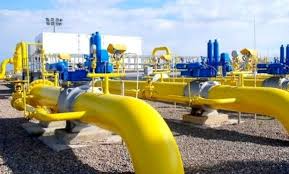
President Abdelmadjid Tebboune’s latest visit to Italy was meant to be a diplomatic breakthrough. Instead,it marked yet another chapter in a series of fruitless overtures that have come to define Algeria’s increasingly desperate foreign policy.
Despite multiple visits to Rome in recent years and generous gas deals,Tebboune returned home empty-handed again.
The Algerian president’s repeated attempts to sway Italy on the Sahara issue have become almost ritualistic.
During the joint press conference in Rome,President Abdelmadjid Tebboune claimed that both Algeria and Italy supported the “self-determination of the Sahrawi people.” This statement was not only diplomatically presumptuous but also inaccurate. Italian Prime Minister Giorgia Meloni,visibly uncomfortable,did not endorse that position and reportedly raised her eyebrows in surprise,signaling a clear disavowal of Tebboune’s assertion.
Each Algerian president’s visit is accompanied by lofty rhetoric,energy agreements,and cultural diplomacy. Yet the outcome remains unchanged: Rome refuses to budge. Italy continues to support a UN-led process and shows increasing sympathy for Morocco’s autonomy plan,leaving Algeria diplomatically stranded.
This latest failure is particularly glaring given the scale of Algeria’s energy concessions. In the first two months of 2025 alone,Italy increased its gas imports from Algeria by 31% compared to the same period in 2024.
These volumes are part of a broader long-term agreement between ENI and Sonatrach,under which Algeria committed to supply an additional 9 billion cubic meters annually by 2024–2025
Much of this gas is sold at discounted prices,a legacy of contracts signed during the height of Europe’s energy crisis.
However,Italy has taken the gas without altering its political stance. Tebboune is squandering Algeria’s resources to buy the status quo of the few remaining western states,who wouldn’t have cared for ties with Algeria,if it was not for gas.
Algeria’s gas diplomacy is no longer a tool of influence. It has become a crutch. The regime is not using energy to build alliances,but to delay defections.
The goal is not to win Italy’s support for the Polisario Front,but to prevent it from openly backing Morocco following the example of the US,France,Spain,the UK,Arab monarchies and most African states.
Demise of gas diplomacy
Worse still,the outlook for Algeria’s gas exports is dimming. Despite ambitious targets,infrastructure bottlenecks and limited pipeline capacity are preventing Algeria from delivering the promised volumes.
The Transmed pipeline,which connects Algeria to Italy via Tunisia,has a technical capacity of 108.7 million cubic meters per day,but actual flows rarely exceed 85 million due to grid constraints and domestic absorption
Even with increased upstream production,Algeria is unlikely to meet its export commitments,let alone expand them.
At the same time,global gas prices are softening,and European demand is stabilizing. The urgency that once gave Algeria leverage is fading. With competition from LNG suppliers and a growing shift toward renewables,Algeria’s window of opportunity is closing fast. Its reliance on long-term contracts at discounted rates may soon become a liability rather than an asset.
Tebboune’s repeated failures in Italy are emblematic of a broader malaise. Isolated on the international stage,facing economic pressures at home,and unable to adapt to a changing geopolitical landscape,Algeria is running out of cards to play. The president’s reliance on gas discounts and symbolic gestures is not diplomacy. It is actually a sort of damage control.
A wiseman should have told Tebboune that he could visit Rome as many times as he likes. He can offer cheap gas and grand speeches. But if he lacks vision,credibility,and allies,he will always return empty-handed.
United News - unews.co.za